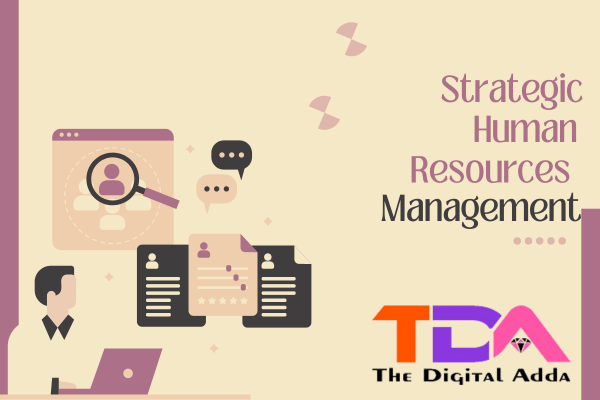Strategic Human Resource Management Certification
Strategic Human Resource Management (SHRM) is the proactive management of an organization’s workforce to align with its overall strategic goals and objectives. It involves integrating HR practices with the strategic objectives of the organization to enhance organizational performance and gain a competitive advantage. Key aspects of SHRM include:
- Alignment with Business Strategy: Ensuring that HR practices support and contribute to the achievement of organizational goals and objectives.
- Talent Acquisition and Retention: Recruiting, selecting, and retaining employees who possess the skills, competencies, and values necessary for organizational success.
- Employee Development and Training: Providing opportunities for employee growth and development to enhance performance and prepare for future roles.
- Performance Management: Establishing systems and processes to evaluate and manage employee performance effectively.
- Succession Planning: Identifying and developing potential future leaders and key employees to ensure continuity and sustainability.
- Employee Engagement and Satisfaction: Fostering a positive work environment and culture that motivates employees to perform at their best.
- Change Management: Facilitating organizational change and adaptation by managing the human side of change effectively.
Key Components
- Strategic Planning: Aligning HR strategies with the overall strategic objectives of the organization.
- Organizational Analysis: Assessing the organization’s internal and external environment to identify HR needs and challenges.
- HR Policies and Practices: Developing and implementing HR policies and practices that support the organization’s strategic goals.
- Measurement and Evaluation: Establishing metrics and key performance indicators (KPIs) to measure the effectiveness of HR initiatives and their impact on organizational performance.
Where It Is Used
Corporate Sector
- Business Strategy Alignment: SHRM is used in corporations to ensure that HR practices are aligned with business strategy and contribute to organizational success.
- Talent Management: Corporations focus on talent acquisition, development, and retention to gain a competitive edge in the market.
- Change Management: SHRM helps organizations manage transitions such as mergers, acquisitions, and restructuring by addressing the human aspects of change.
Small and Medium-sized Enterprises (SMEs)
- Strategic Planning: SMEs use SHRM to develop HR strategies that support their growth and expansion plans.
- Employee Development: SMEs invest in employee training and development to enhance skills and competencies for business growth.
Public Sector
- Government Agencies: SHRM is applied in government agencies to improve workforce effectiveness, employee engagement, and service delivery to citizens.
- Civil Service Reform: Public sector organizations focus on modernizing HR practices and systems to attract and retain top talent.
Nonprofit Organizations
- Mission Alignment: Nonprofits use SHRM to align HR practices with their mission and values to achieve social impact.
- Volunteer Management: Nonprofits rely on effective volunteer management strategies to engage and retain volunteers who support their mission.
Healthcare Industry
- Talent Acquisition: Healthcare organizations focus on recruiting and retaining skilled healthcare professionals to meet patient care needs.
- Workforce Planning: SHRM helps healthcare organizations address workforce shortages and plan for future staffing needs.
Education Sector
- Faculty Development: Educational institutions invest in faculty development and training to enhance teaching effectiveness and student outcomes.
- Student Services: SHRM is used in universities and colleges to improve student services, such as career counseling and academic advising.
Hospitality and Tourism
- Employee Engagement: Hospitality organizations focus on creating a positive work environment and culture to enhance employee satisfaction and guest experiences.
- Training and Development: SHRM helps hospitality businesses develop employee skills and competencies to deliver high-quality service.











